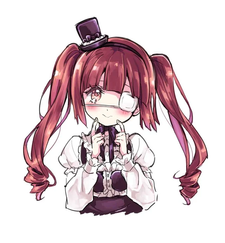Mar 21, 2024
Frieren: Beyond Journey's End is unethical because it has no qualms about portraying demons as inherently flawed despite the fact that they showcase intellect and empathy that is on par with humans on numerous occasions. Nevertheless, elves, who are implied to be unable to empathize, are given preferential treatment simply because they pose no threat to humans, which in itself is a contradiction. The above-mentioned seems to indicate that Frieren is not actually about time and change, but rather seeks to promote anthropocentrism and communism. It is anthropocentric in the sense that humans are at the center of everything in Frieren, despite being substantially inferior
...
to both demons and elves. To further illustrate the point that is being made, in every single scene that involves demons or elves, humans are invariably brought up. It is as if the lives of every demon and elf revolve around human beings.
This show is fervently against the exertion of power, except when it benefits humans. This is most notably seen when frieren states directly to Serie, the personification of power, that her favourite spell is one that creates a field of flowers. In spite of that, Frieren does not have any second thoughts about massacring demons despite having seemingly no motive to do so. After all, it has already been established that elves feel no attachment towards their species as a whole and lack self-preservation instincts, which excludes the possibility that she is avenging their deaths. On top of that, Frieren's obsession with killing demons predates her meeting Himmel and Flamme, which could otherwise have served as a catalyst. The only explanation is that it benefits humans. This is another case of narrow-minded anthropocentrism in which the writer is unable to imagine a world that does not revolve around human sentiments.
As for the atmosphere, it is degraded by the constant barrage of flashbacks and jokes that are more often than not inserted into serious moments, which lessens the impact. Frieren was great when it was simply a story about an elf who wanders around aimlessly with her companion, collecting spells that she happens to come across along the way. The writer, blinded by her communistic viewpoints and subconscious craving for violence, changed the course of the story to better reflect her ideal world scenario, a scenario in which wealth and power is distributed among the people (humans), as opposed to the unfeeling aristocrats (demons). To achieve this objective, she posits that a powerful state (elves) needs to intervene and redistribute the power. This is alluded to when Flamme (influenced by Serie) successfully persuaded the Emperor of the continent's largest unified empire to endorse nationwide research into magic; magic is power. Prior to that point, every type of magic was viewed as demonic practice, and prohibited as a result. Furthermore, the goddess of creation is depicted with the long ears of an elf, which is in line with the establishment of the elves as the symbol of the state.
The previously mentioned flaws detract from the immersion of the reader, while also reinforcing the belief that Frieren is not a proper fantasy. Fantasy relies on the improbable, but to be effective, it must maintain a level of believability; truth is stranger than fiction. For instance, The existence of a species (referring to elves) that does not conform to the biological imperative (drive to reproduce, will to power, etc) is fantastic in nature, but the audience is nevertheless owed an explanation as to how that can be, and Frieren fails miserably in that regard. With that said, it does not come as a surprise that a sizeable portion of the Frieren fandom have correctly surmised that it is in fact a "native isekai", rather than a regular fantasy.
Reviewer’s Rating: 5
What did you think of this review?
Nice
 0
0
Love it
 0
0
Funny
 0
0
Confusing
 0
0
Well-written
 0
0
Creative
 0
0Show all
